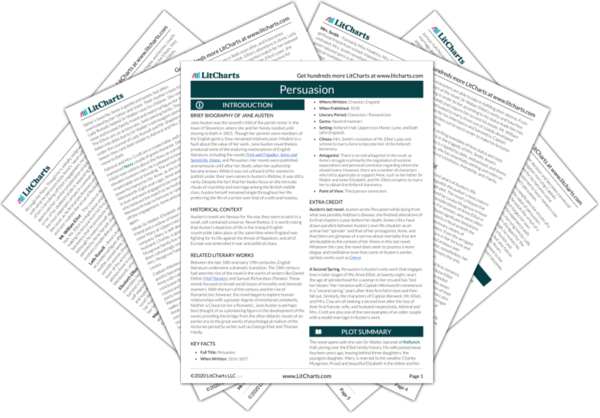Lady Russell Quotes in Persuasion
Chapter 4 Quotes
Anne Elliot, with all her claims of birth, beauty, and mind, to throw herself away at nineteen; involve herself at nineteen in an engagement with a young man, who had nothing but himself to recommend him, and no hopes of attaining affluence, but in the chances of a most uncertain profession, and no connexions to secure even his farther rise in that profession; would be, indeed, a throwing away, which [Lady Russell] grieved to think of! . . . It must not be, if by any fair interference of friendship, any representations from one who had almost a mother’s love, and mother’s rights, it would be prevented.
Anne, at seven and twenty, thought very differently from what she had been made to think at nineteen.—She did not blame Lady Russell, she did not blame herself for having been guided by her; but she felt that were any young person, in similar circumstances, to apply to her for counsel, they would never receive any of such certain immediate wretchedness, such uncertain future good. . . . She had been forced into prudence in her youth, she learned romance as she grew older—the natural sequel of an unnatural beginning.
Chapter 23 Quotes
I was right in submitting to her, and that if I had done otherwise, I should have suffered more in continuing the engagement than I did even in giving it up, because I should have suffered in my conscience. I have now, as far as such a sentiment is allowable in human nature, nothing to reproach myself with; and if I mistake not, a strong sense of duty is no bad part of a woman’s portion.












